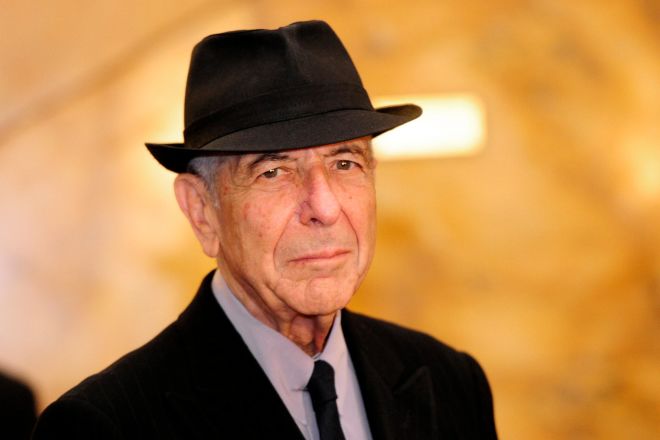Leonard Cohen, a poet, novelist and singer-songwriter
whose deep baritone and melancholic air gave a dark, sensual edge
to North American folk music, has died at age 82.
The "godfather of gloom," as he was called, had recorded more
than a dozen albums, including his latest, "You Want It Darker,"
released in October, and had talked recently about being ready for
death. A memorial will take place in Los Angeles, according to a
statement by his management. No other details about his death were
given.
Born on Sept. 21, 1934, in Canada, Mr. Cohen began as a writer
but later turned to folk music. Early songs such as "Suzanne,"
"Bird On The Wire" and "Famous Blue Raincoat" were haunting and
sparse, often accompanied by not much more than an acoustic
guitar.
"The Partisan," a song Mr. Cohen covered and had learned at age
15, was about the French resistance to Nazi Germany. "Chelsea
Hotel," one of his own compositions, was about singer Janis Joplin.
On Thursday night, fans erected a make-shift memorial at the hotel
in New York City with red wine, candles and hand-written notes.
If many folk singers in the 1960s looked outward to politics and
social issues, Mr. Cohen turned inward, composing introspective,
intimate songs that became something of genre unto themselves:
Bedside folk music.
In the 1990s, Mr. Cohen developed a more synthetic,
keyboard-driven sound and dipped more into politics ("The Future,"
"Democracy"). He remained a popular touring act, performing live
until earlier this year. At different points he experienced
financial difficulties after being defrauded by a long-time
manager, spent time in a Zen monastery and released a book of
poetry and drawings called "Book of Longing."
One of Mr. Cohen’s songs, "Hallelujah," has become a standard,
having become popular after being covered by singer Jeff Buckley in
1994, who in turn was inspired by a cover by John Cale, a member of
the Velvet Underground.
In an profile published in October in the New Yorker magazine,
Mr. Cohen talked about the death of Marianne Ihlen, his long-time
muse. In a letter to her when he learned she was near death, he
said: "Well Marianne, it’s come to this time when we are really so
old and our bodies are falling apart and I think I will follow you
very soon. Know that I am so close behind you that if you stretch
out your hand, I think you can reach mine."















.jpg)




























